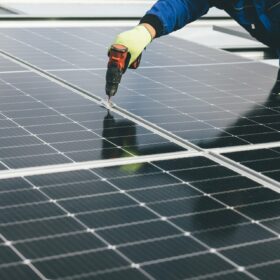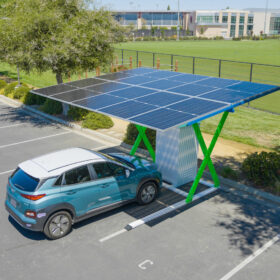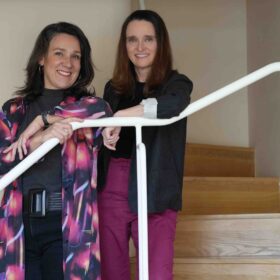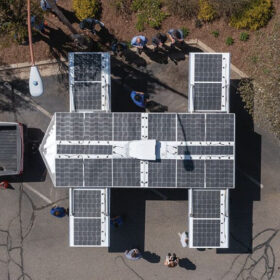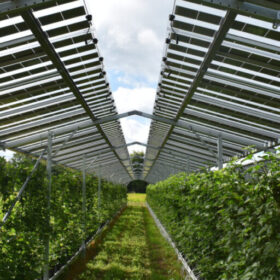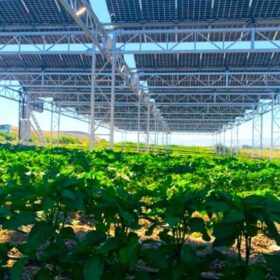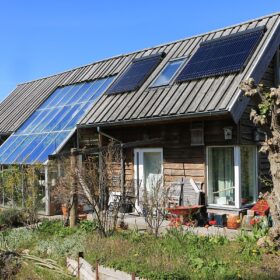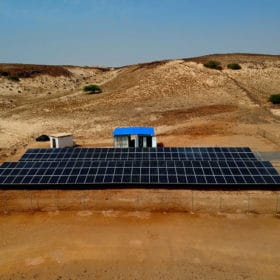The effect of height, tilt angle, and temperatures on floating PV performance
A research team studied factors influencing floating PV efficiency and energy production and determined the optimal tilt and height to achieve lower cell temperatures compared with land-based PV.
Philippines proposes register for PV system installers
The Philippines’ Department of Energy (DOE) is moving ahead with plans to require solar system installers to officially register with it. The DOE says that only registered installers will be recommended to government entities seeking PV installation services.
Off-grid solar EV charging system designed for quick installation
The PairTree off-grid solar charging system for electric vehicles (EVs) combines bifacial solar panels ranging from 4.6 kW to 5 kW, a 42.4 kWh capacity storage system, and one or two AC “Level 2” EV chargers.
Renewables for cultural recovery in rural communities
Spanish startup On Social 2 has proposed the creation of long-term, energy-adjacent jobs based on cultural recovery through compensatory measures in rural communities.
Photovoltaics can reduce economic poverty by 4.5% in China
Researchers assessed the effect of solar energy projects on poverty in China and determined that PV systems can play a role in reducing multiple dimensions of poverty while also contributing to environmental protection.
Weekend Read: Decarbonizing disaster response
Diesel generators have been the workhorse of disaster relief for decades but as the frequency of extreme weather events rises, so do calls to decarbonize the emergency response. Sustainability may not be the only benefit to using solar in a crisis, as pv magazine discovers.
Small-scale solar good for environment, but agrivoltaics might be better
Canadian researchers have conducted a lifecycle analysis showing that it’s good for the environment to put solar on rooftops, but a mix of small-scale PV and agrivoltaics might be a better alternative.
Turkey launches agrivoltaics research project
Turkey’s new agrivoltaics project, under the ODTÜ-GÜNAM Center for Solar Energy Research and Applications’ Livinglab initiative, will allow researchers to test products and production processes by developing tracker systems with control algorithms specially designed for specific crops.
Denmark supports first energy communities
The Danish Energy Agency says it dished out a total of DKK 4.2 million ($61,9542) in grant funding this year to nine local energy communities and projects supporting renewable energy. Projects include an energy community start-up guide for rural environmentalists to an energy community feasibility study in a decades-old garden association.
Solar PV key to transforming water, energy, food crises into a nexus opportunity
RES4Africa Foundation brings attention to the role of solar PV in addressing the water, energy and food crisis in the southern and eastern Mediterranean countries. The region is characterised by abundance of sunlight, coupled with scarce availability of agricultural land and freshwater resources to feed its fast-growing populations.

